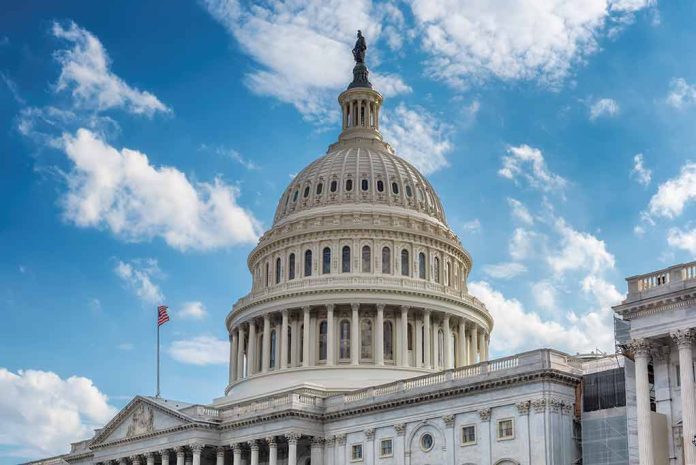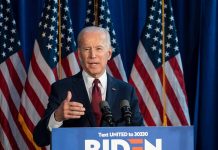
The Senate has passed the Enhanced Presidential Security Act, potentially changing the landscape of candidate protection in the United States.
At a Glance
- The House passed a bipartisan bill 405-0 to enhance security for presidential candidates, driven by recent threats to former President Donald Trump.
- The bill mandates that the Secret Service use the President’s level of security for major candidates.
- Funding discussions are ongoing to ensure adequate resources for the Secret Service.
- The measure now awaits approval from President Biden.
Security Measures Increased for Presidential Candidates
The Senate recently approved the Enhanced Presidential Security Act, aiming to offer the same level of protection to presidential and vice-presidential candidates as is currently provided to sitting presidents and vice presidents. This legislation, introduced by Rep. Mike Lawler (R-N.Y.) and supported by Sen. Rick Scott (R-Fla.), underscores the importance of national security amid rising threats to prominent figures.
In the House, the bill saw overwhelming bipartisan support, passing with a 405-0 vote. This response highlights the severity of recent events, including two assassination attempts on former President Donald Trump. The bill’s passage signals Congress’s recognition of the need for heightened security measures, ensuring the safety of candidates from both major political parties. The Secret Service is now required to apply presidential-level protections to these candidates, addressing recent security inadequacies.
The Senate on Tuesday unanimously passed a House bill that would require an equal standard of Secret Service protection to be applied to presidents and all major party candidates. https://t.co/0jlqqVglmE
— ABC News (@ABC) September 25, 2024
Funding and Resource Allocation
The necessity of ensuring adequate resources for the Secret Service has been a significant concern. Lawmakers are in ongoing discussions to determine if additional funding is needed. Temporary financial measures may be enacted to provide for enhanced operations, covering costs related to technology upgrades, collaborations with other agencies, and increased agent overtime. Currently, the Secret Service operates on a $3.1 billion budget, yet some lawmakers argue that the agency’s resources are stretched thin.
“In America, elections are determined at the ballot box, not by an assassin’s bullet,” Rep. Mike Lawler stated during the floor debate. “That these incidents were allowed to occur is a stain on our country.”
This sentiment is echoed by other key leaders who emphasize the bill’s bipartisan nature. House Speaker Mike Johnson responded, highlighting a unified front on the importance of candidate protection. The collaboration across party lines is seen as crucial to addressing the escalating threats.
Senate passed legislation by unanimous consent to provide equal Secret Service protection to major presidential and vice presidential candidates as they do for the current president & vice president. House passed the bill 405-0 last week & it now heads to President Biden to sign. https://t.co/4vGt39CwoC pic.twitter.com/yFoCTzd40d
— Craig Caplan (@CraigCaplan) September 24, 2024
Awaiting Presidential Approval
The Senate’s approval propels the bill to President Biden’s desk for final approval. If signed, the Enhanced Presidential Security Act will ensure that both current and future candidates, including Vice President Kamala Harris and former President Donald Trump, receive an elevated level of protection. Ensuring the safety of these candidates is a critical component of maintaining the integrity of the democratic process, preventing attempts to influence political outcomes through violence.
Senator Rick Scott emphasized the importance of the bill, stating, “Over the course of just 65 days, two deranged individuals have tried to kill President Donald Trump, and one was able to shoot him in the head. It is unthinkable that this could happen in America today, and it demands the immediate action of Congress.”
This legislative move aims to place all presidential nominees under equal protection, ensuring their safety and thus maintaining the robustness of the democratic system. The bill’s passage marks a significant step toward bolstering national security and preserving the legitimacy of the electoral process in the United States.
Sources
2. House passes bill to boost Trump security as Congress scrambles to ensure candidate safety









